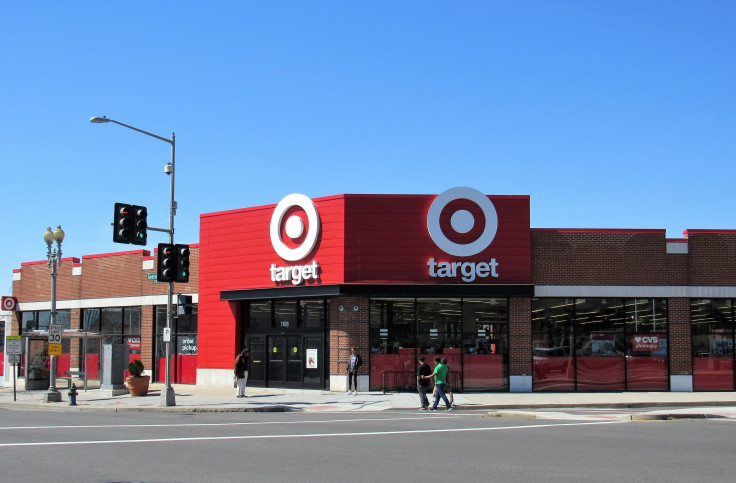Target Takes A Page From Amazon's Playbook In New Toys R Us Partnership

Back from death's door, Toys R Us -- owned by new parent organization Tru Kids -- is ready to reintroduce the toy retailer to the U.S. As it turns out, its former big-box store nemesis Target (NYSE:TGT) will play a key role.
A very key role. In fact, as Target recently announced, shoppers visiting the new Toys R Us website will be redirected to Target's online store when making a purchase. Target will handle all online inventory and order fulfillment, virtually making the new Tru Kids website merely an extension of its own e-commerce platform. Target will also handle all online ordering and fulfillment when Toys R Us debuts its first two new physical stores in Houston, Texas, and Paramus, New Jersey, this holiday shopping season.
The "partnership" shows off Target's newly found digital selling prowess and looks an awful lot like a play you would see coming from e-commerce leader Amazon.com (NASDAQ:AMZN). Target may not be about to become a technology powerhouse, but it's desperate times in the world of retail and the industry is in short supply of digital infrastructure partners that don't start with the letter A.
The Amazon template to success
It's hard to believe that online shopping was still in its infancy less than two decades ago. In the early 2000s, lots of retailers saw the direction things were headed and started signing agreements with a small upstart called Amazon -- letting the small digital selling platform handle all of the ordering and logistics.
Simply being an early adopter of online retail wasn't the key to Amazon's success. What really helped was all the data gathered, and the e-retailer learned a lot from its partnerships. Amazon used what it learned to bolster its own platform, laying the groundwork for the e-commerce marketplace and business services platform it is today. Target was one of those early partnerships, but the company soon realized Amazon was getting far more out of the deal than it was. After inking a deal in 2001, Target announced in 2009 it would be going its own way when its 10-year contract was up in 2011.
Mistakes are the best way to learn, and though it was viewed as a bold move on Target's part at the time, launching its own online store is now paying off where so many others have gone under at the expense of Amazon. Granted, it's taken another decade to start paying off, but it's far better than being a potential casualty of the so-called "retail apocalypse" bringing death and destruction to many brick-and-mortar stores the last few years.
Is Target creating a new omni-commerce platform?
Target's arrangement with the new Toys R Us looks eerily similar to what Amazon was doing not so long ago. It's a no-brainer for Target, as it will get the lion's share of benefits from someone else's marketing efforts. It's also a head-scratcher of an agreement for Tru Kids. Surely it knows the risk of this plan backfiring, but Toys R Us is barely a shell of its former self and has few options. Will the deal send Target down a similar digital data powerhouse path as it did Amazon?
Maybe. I've long contended that a select few brick-and-mortar stores -- Target included -- would be just fine post-retail apocalypse fallout. After all, real estate still has value in a digital world. Inventory needs to be stocked somewhere, and having a large footprint within miles of the majority of your customer base is a supply chain dream -- albeit one in need of a few tweeks first, converting parts of retail store operations into warehousing and order fulfillment centers.
Target's angle here might be an omnichannel (digital and physical store) platform where Amazon was a digital retail platform. And why not? Target has been around a long time and knows a thing or two about selling stuff. Case in point, Target also cut an agreement with Disney (NYSE:DIS) to start testing a store-within-a-store concept at select locations, giving Disney merchandise some extra exposure without having to open stores itself. Maybe this is all just the start of Target's future aspirations.
Or this could simply be a reflection of the times. Retailers have a tough predicament these days: Launch their own digital store (the expensive option with a potentially big payoff later) or partner with an existing platform (the cheap option out of the gate that could create a future competitor). For option No. 2, Amazon isn't the only game in town anymore, and Target could become a serious contender for smaller retail partner business if it wants to. Stay tuned.
John Mackey, CEO of Whole Foods Market, an Amazon subsidiary, is a member of The Motley Fool's board of directors. Nicholas Rossolillo and his clients own shares of Walt Disney. Once upon a time he owned Target, but lost his nerve and sold far too soon. Shame on him. The Motley Fool owns shares of and recommends Amazon and Walt Disney. The Motley Fool has the following options: long January 2021 $60 calls on Walt Disney and short October 2019 $125 calls on Walt Disney. The Motley Fool has a disclosure policy.
This article originally appeared in The Motley Fool.





















